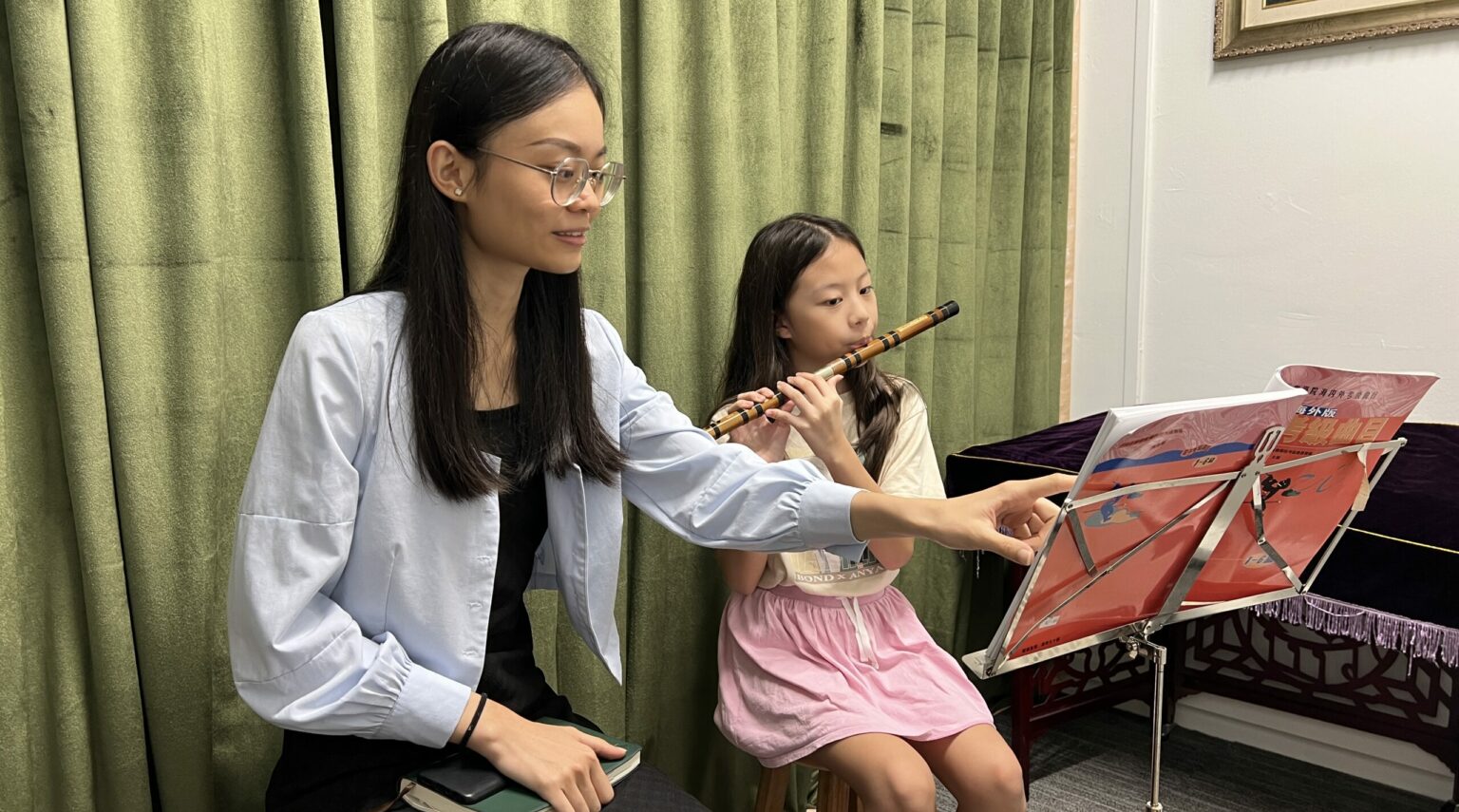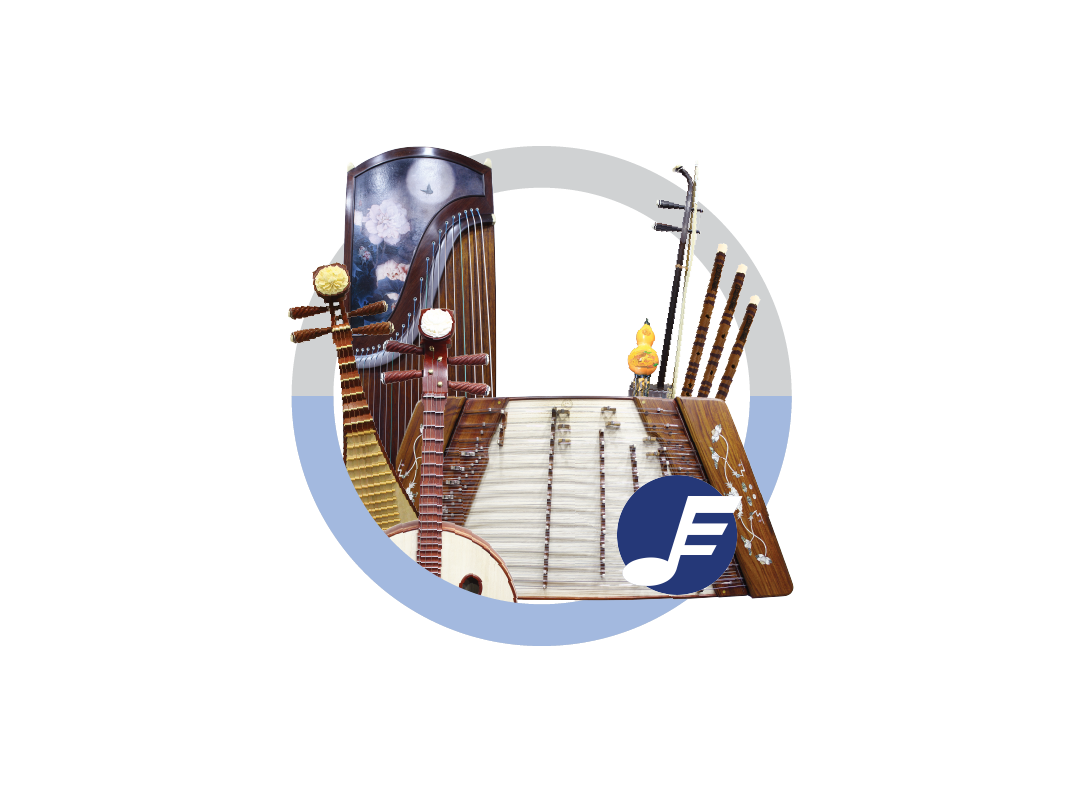
DIZI LESSONS
Welcome to your pathway to an extraordinary musical voyage –Dizi Lessons Singapore, where the ageless melodies of the Chinese Dizi await your exploration!
Imagine honing the art of playing the Bamboo Flute, a cherished gem in the Chinese orchestra. Its melodious tones embody tradition and culture, captivating generations.
Uncover the mysteries of this captivating instrument as its flute membrane weaves a distinctive symphony – a harmonious fusion of brilliance and resonance setting it apart from other flutes.
With its elegant design and lightweight build, the Dizi becomes your musical companion, always ready to share its melodic tales wherever you may journey.
Our team of dedicated and proficient Dizi instructors is here to guide you on an illuminating path, ensuring mastery of every Dizi nuance and technique. Whether you're a novice or refining skills, our seasoned instructors will be your mentors, illuminating the road to Dizi proficiency.
Embark on this captivating expedition into the Dizi realm – where each note tells a story and every lesson kindles your musical passion.
Join us and allow the allure of the Dizi to guide you into a world of melody and harmony unlike any other.
Your musical journey commences here! 🎵
6 Reasons To Learn Dizi
DIZI
CHINESE FLUTE
An introduction to the Dizi
The Dizi (笛子), a cherished gem within the realm of traditional Chinese music, embodies the soulful essence of bamboo craftsmanship, renowned for its mesmerizing melodies and dynamic tonal range. With an illustrious history spanning millennia, this ancient wind instrument boasts an elegant yet intricate design, meticulously fashioned from resilient bamboo and adorned with finger holes and produces that distinctive oriental sound via the vibration of the the special flute membrane (Dimo).
Its ingenious construction enables adept musicians to weave a tapestry of sounds, effortlessly transitioning from slow and tranquil notes to vibrant and fast tunes, leveraging variations in breath control and finger dexterity. Revered for its cultural significance, the dizi holds a revered place in both classical and contemporary Chinese music, serving as a profound testament to China's rich musical legacy.
WHY EASON MUSIC?
CHOOSE YOUR OBJECTIVES
In Eason Music we recognise that different people have different objectives when learning the Dizi.
Thus the choice is yours to choose to learn for leisure or for exams.
TENG NTU-CI Exam Syllabus
This stage is for Grade 1-3 (Based on Teng - CI - NTU - Chinese instrumental examination).
Grade 1 repertoire:
Chang Cheng Yao (长城谣), Mo Li hua (茉莉花), Xiao Diao (小调), Huan Le Song (欢乐颂)
Grade 2 repertoire:
Mei Li De Gu Niang (美丽的姑娘), Zi Zhu Diao (紫竹调), Xian Qi Ni De Gai Tou Lai (掀起你的盖头来), Jin She Kuang Wu (金蛇狂舞)
Grade 3 repertoire:
Hua Hao Yue Yuan (花好月圆), Cai Yun Zhui Yue (彩云追月), Su Shan Na (苏姗娜), Liang Zhu(Excerpt) (梁祝片段)
*Progress depends on individual's efforts*
This stage is for Grade 4-6 (Based on Teng - CI - NTU - Chinese instrumental examination).
Grade 4 repertoire:
Liu Yue Mo Li (六月茉莉), Xiao Fang Niu (小放牛), Mai Cai (卖菜), Wo Shi Yi Ge Bing (我是一个兵)
Grade 5 repertoire:
Gu Su Xing (姑苏行), Dui Hua (对花), Yang Bian Cui Ma Yun Liang Mang (扬鞭催马运粮忙), Xi Hu Chun Xiao (西湖春晓)
Grade 6 repertoire:
Xi Xiang Feng (喜相逢), Mu Di (牧笛), Hong Ling Jin Lie Che Ben Xiang Bei Jing (红领巾列车奔向北京), Xia Bei Hao (陜北好)
*Progress depends on individual's efforts*
This stage is for Grade 7-8 (Based on Teng - CI - NTU - Chinese instrumental examination).
Grade 7 repertoire:
Yi Meng Shan Ge (沂蒙山歌), Zhe Gu Fei ( 鹧鸪飞), Mu Min Xin Ge (牧民新歌), Qin Chuan Shu Huai (秦川抒怀)
Grade 8 repertoire:
San Wu Qi (三五七), Wan Nian Hong (万年红), Chun Dao Xiang Jiang (春到湘江), Da Qing Shan Xia (大青山下)
*Progress depends on individual's efforts*
MEET OUR DIZI TEACHERS!
A student is only as good as her teacher. We only work with qualified and dedicated teachers
Lee Jun Cheng
Khor Yee Sing
Kok Wee
Jason Chua
Dizi Lessons Information
You can opt to take Dizi lessons at our studios at CT Hub, or at the comfort of your home. Different rates apply.What Our Students Say
Frequently Asked Questions
The Dizi is categorised into the Xindi, Qudi and Bangdi.
Xindi is the lowest pitched, with the keys Low F, Low G, Low A and Low Bb.
The Qudi has a middle ranged pitch, with the keys C, D and E.
The Bangdi has the highest pitch, with the keys F, G, High A, High Bb, High C and High D. The higher the pitch, the smaller the Dizi.
For beginners, it is usually recommended to start with a D key Dizi, before moving on to the different keys, which caters to different repertoire.
Want to learn more about the Dizi?
Click the posts below!








